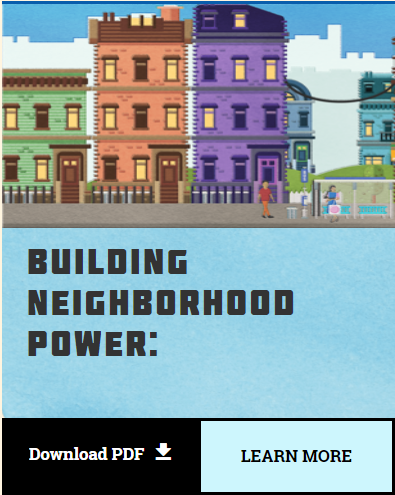
#OurNeighborhoods Organizing Toolkit
#OurNeighborhoods is a network of Asian American and Pacific Islander (AAPI) grassroots organizations committed to addressing the issue of gentrification through neighborhood organizing. A project of the National Coalition for Asian Pacific American Community Development (National CAPACD), #OurNeighborhoods builds power with low-income AAPI residents and youth who have been directly impacted by displacement. They created two toolkits, one for tenants and one for neighborhoods, as a resource for communities as they organize and build community power.

Tools to Engage Webinar Series Part 7: Census, the Citizenship Question, and the Community and Organizational Response
This 60-minute webinar moderated by BMP’s Networking and Learning Manager TC Duong and featuring XP Lee Program Manager for Policy & Special Projects with the Minnesota Council on Foundations, Joseph Shoji Lachman ACRS Civic Engagement Program Manager with Asian Counseling and Referral Service, and Raima Roy from Asian Americans Advancing Justice. These speakers helped explain why being counted in the Census is so important, especially for historically undercounted communities, and how the Trump administration’s efforts to include a question about citizenship in the 2020 Census has erected further barriers to a full and inclusive count. During the webinar, participants also learned about how Asian American and Pacific Islander organizations and networks are organizing and mobilizing around Census 2020 and what shifts they have made to fight back against the citizenship question.
In case you missed the webinar, we’ve made it easy to watch a recording and download the slides.
The links and resources mentioned during the webinar include:
- HmongCensus.org
- Facebook Page for the Washington Census Alliance: https://www.facebook.com/CensusAllianceWA/
- https://www.countusin2020.org/partner-resources
- Washington Census Alliance – info@wacensusalliance.org
- https://mcf.org/2020-census-and-american-community-survey
- Race to Lead Survey: bit.ly/RacetoLeadSurvey
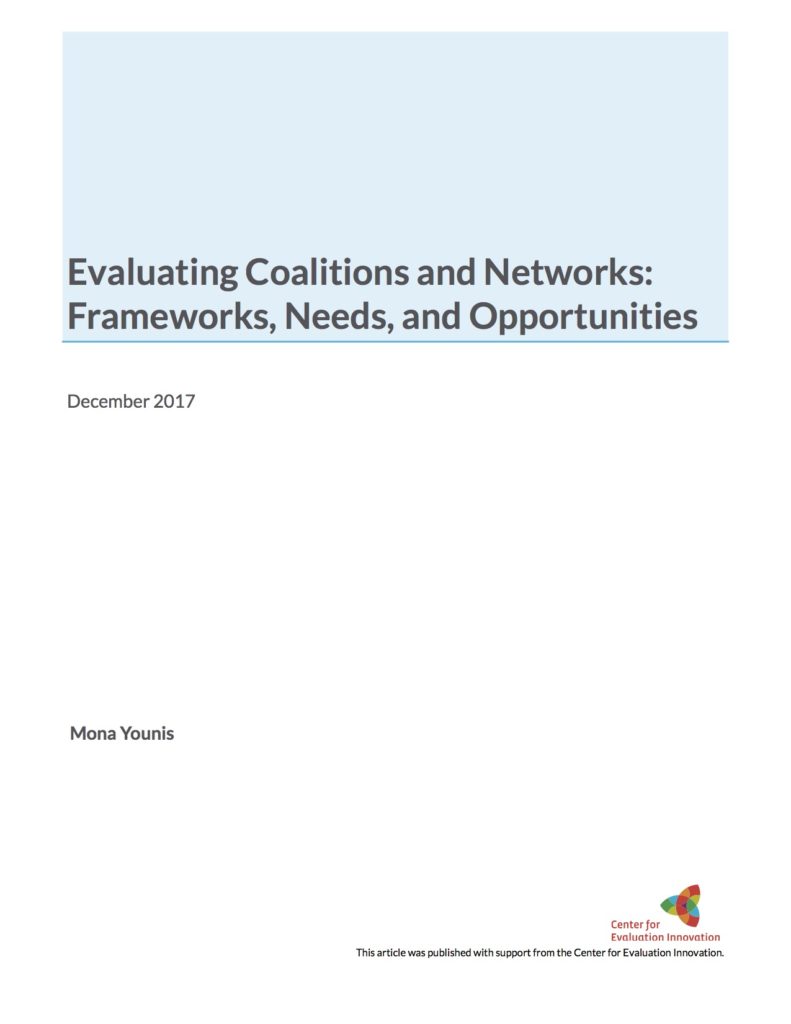
Evaluating Coalitions and Networks: frameworks, needs, and opportunities
Evaluators have developed an impressive array of approaches, frameworks, and tools to support both coalitions/networks and their funders. The report explores these developments, and points to challenges and opportunities that remain in efforts to assess the effectiveness and impact of coalitions/networks.
This review is for coalitions and networks that are considering embarking on evaluation. It begins with what makes coalitions and networks different from standalone organizations, and the implications for evaluation. It then reviews five selected evaluation frameworks, highlighting their advantages, limitations, and applicability. Finally, it offers a set of lessons and opportunities related to coalition/network evaluation based on real-life experiences, along with insights for funders on how best to support evaluation of the coalitions/networks they support.

Continuum of Change
This agenda and worksheet can be used to create a continuum of care model for your community. This model includes the range of services that would be needed to support individuals and families at all stages, beyond what one organization alone could provide. It is a way to begin identifying partners and allies in your community.

Toolbox for Building Needle-Moving Collaboratives
This concise guide, from United We Serve, provides information, tools, examples and resources for collaboratives to succeed at any stage from planning and development, through roll-out and course-correcting, and on to deciding its next steps.

The Design and Implementation of Cross-Sector Collaboration
Based on an extensive review of the literature on collaboration, this article presents a propositional inventory organized around the initial conditions affecting collaboration formation, process, structural and governance components, constraints and contingencies, outcomes, and accountability issues.
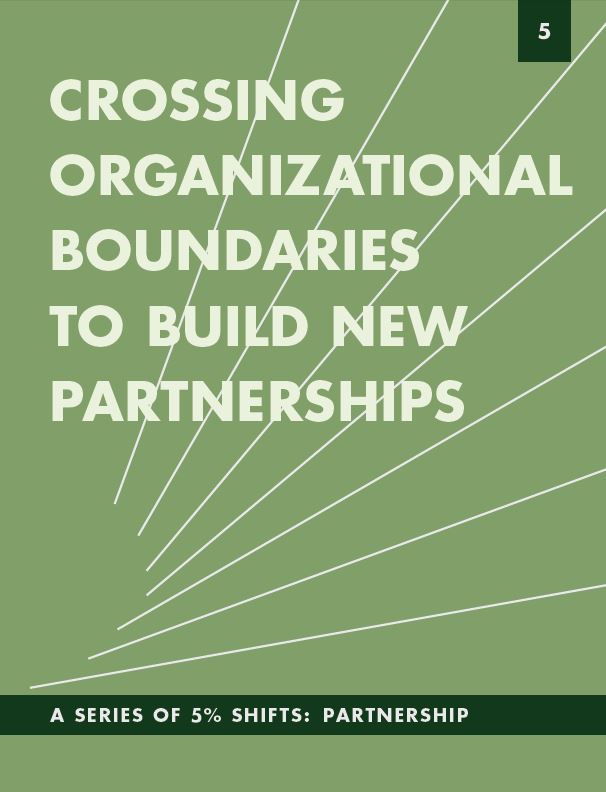
Crossing Organizational Boundaries to Build New Partnerships
Breaking down the silos between service providers, and the barriers between providers, advocates, and organizers is critical to knitting together and protecting a strong social safety net that helps build community. Furthermore, fostering collaboration between organizations (and often even within organizations) can help better identify community level issues that a strong ecosystem of organizations can address together. This report explores partnerships initiated in cities that are facing similar social and economic struggles.
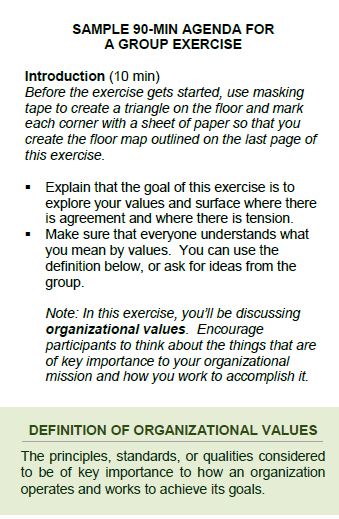
Sharing Values
This exercise is designed for working with partners to explore where values are aligned and where there might be differences. There is a discussion guide that focuses on both the alignment and possibilities where values differ.
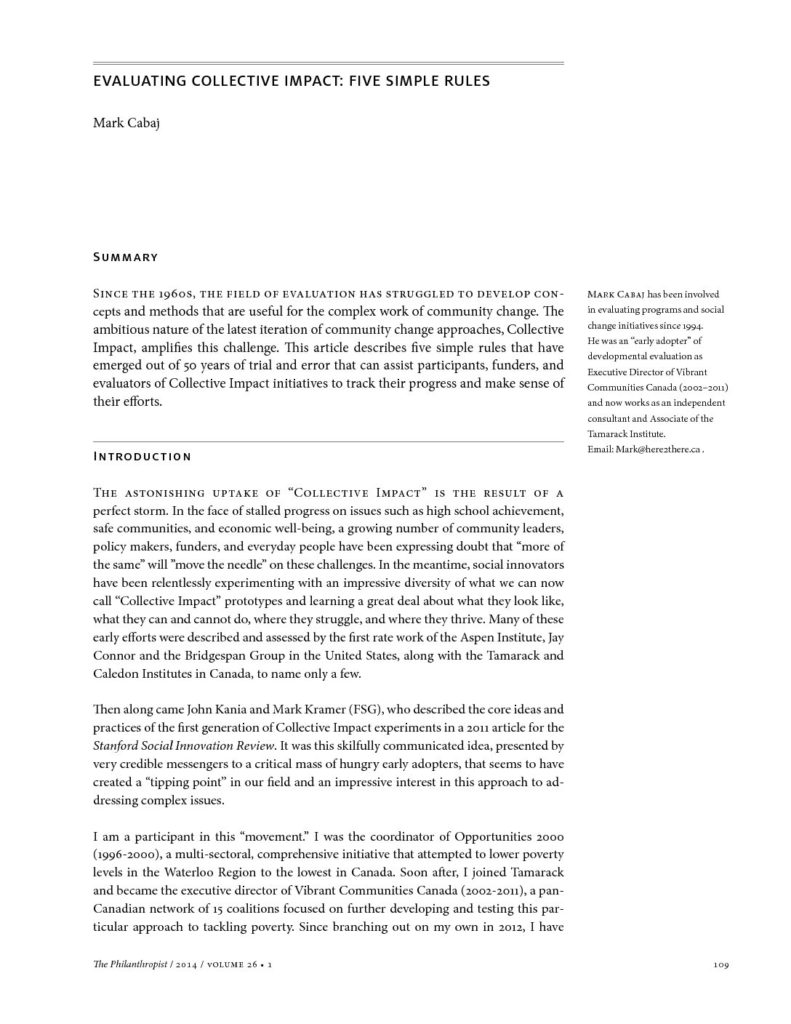
Evaluating Collective Impact: Five Simple Rules
Download this article to learn the five simple rules that that can assist participants, funders, and evaluators of collective impact initiatives to track their progress and make sense of their efforts. Downloading requires signing up to join the CIF, which is free and which we recommend.
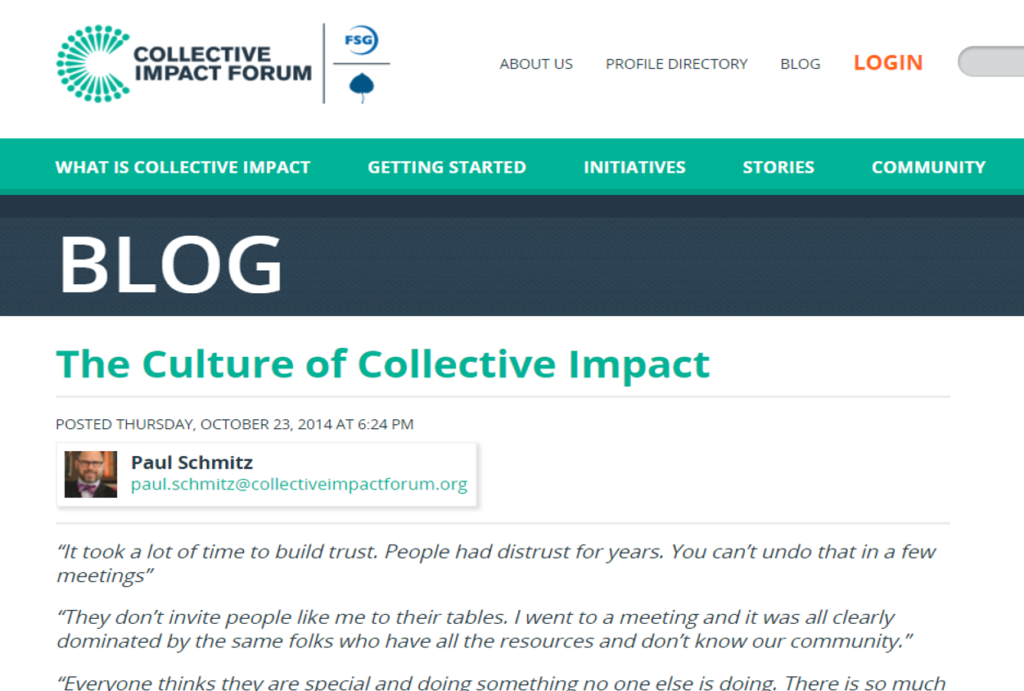
The Culture of Collective Impact
This article presents 5 core values that help leaders at all levels work better together.
